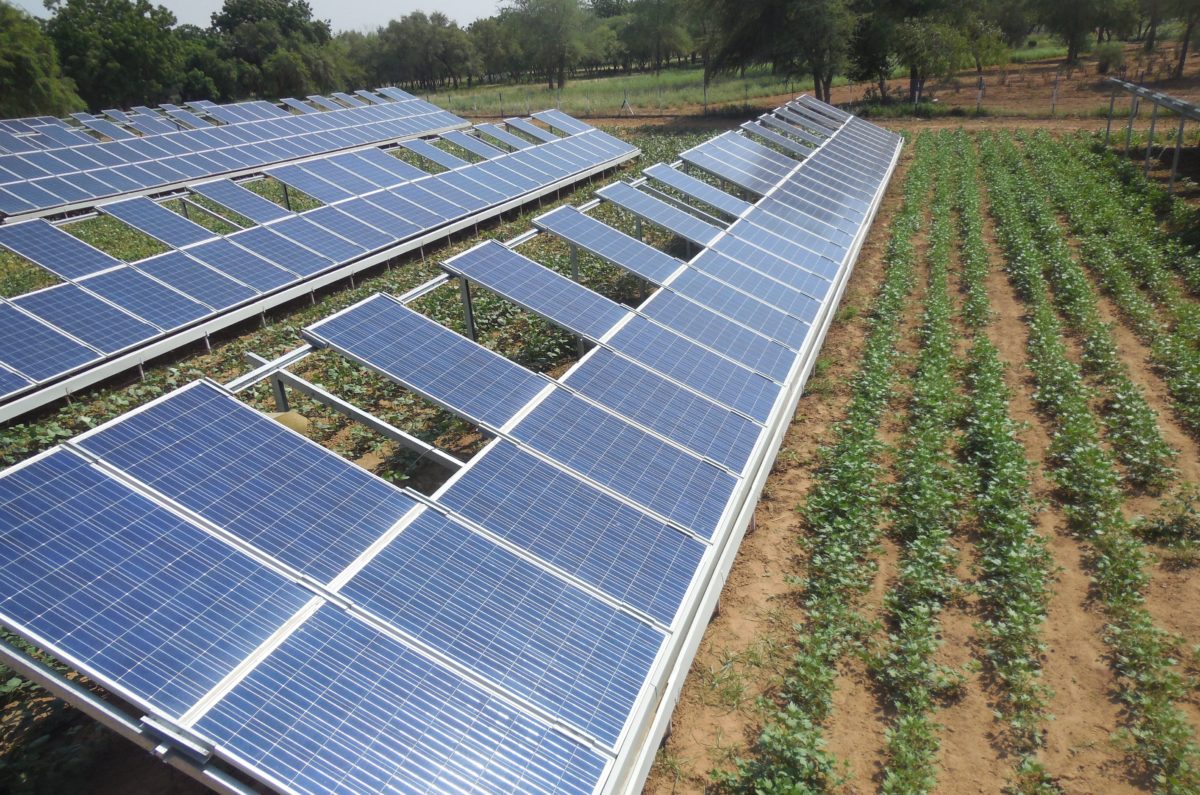From pv magazine India
A new study by the Canada-based International Institute for Sustainable Development (IISD) and the Consumer Unity and Trust Society International (CUTS) has shown promising results in pilot agrivoltaics projects throughout India, highlighting the opportunities for further research and investment.
The study, which was supported by Deutsche Gesellschaft für Internationale Zusammenarbeit (GIZ) GmbH and funded by the German Federal Ministry for Economic Cooperation and Development (BMZ), showed that agrivoltaics do not negatively impact crop yields and, in some cases, even increase them. Pilot implementers interviewed in the study indicated the technical feasibility of agrivoltaics, with certain crops like leafy vegetables, millet, and medicinal plants showing no change or increased yields under shading conditions.
However, the study also revealed that agrivoltaics is still limited to a small number of pilots in India and has not yet reached a commercial scale. To achieve commercialization, the study suggests focusing on technological innovations and testing business models suitable for the Indian context. It identifies three potential business models: joint ownership between farmers and developers, sole ownership by either party, or primary promotion by developers with farmers as partners.
Bifacial panels and sun tracking were found to be promising in agrivoltaics and can be encouraged through state-sponsored pilots. The study also identifies arid and semi-arid regions, as well as peri-urban areas, as favorable locations for agrivoltaics in India.
To support agrivoltaics, the study recommends state governments reform land-use and tax regulations, develop consistent standards and definitions, and go beyond a uniform ceiling tariff regime. Capacity building, continuous innovation, and peer learning are emphasized to overcome operational challenges.
The findings of the study are based on the experiences of various stakeholders, including power distribution companies, agricultural universities, private solar PV developers, and farmers who have implemented agrivoltaics pilots across India.
This content is protected by copyright and may not be reused. If you want to cooperate with us and would like to reuse some of our content, please contact: editors@pv-magazine.com.




5 comments
By submitting this form you agree to pv magazine using your data for the purposes of publishing your comment.
Your personal data will only be disclosed or otherwise transmitted to third parties for the purposes of spam filtering or if this is necessary for technical maintenance of the website. Any other transfer to third parties will not take place unless this is justified on the basis of applicable data protection regulations or if pv magazine is legally obliged to do so.
You may revoke this consent at any time with effect for the future, in which case your personal data will be deleted immediately. Otherwise, your data will be deleted if pv magazine has processed your request or the purpose of data storage is fulfilled.
Further information on data privacy can be found in our Data Protection Policy.